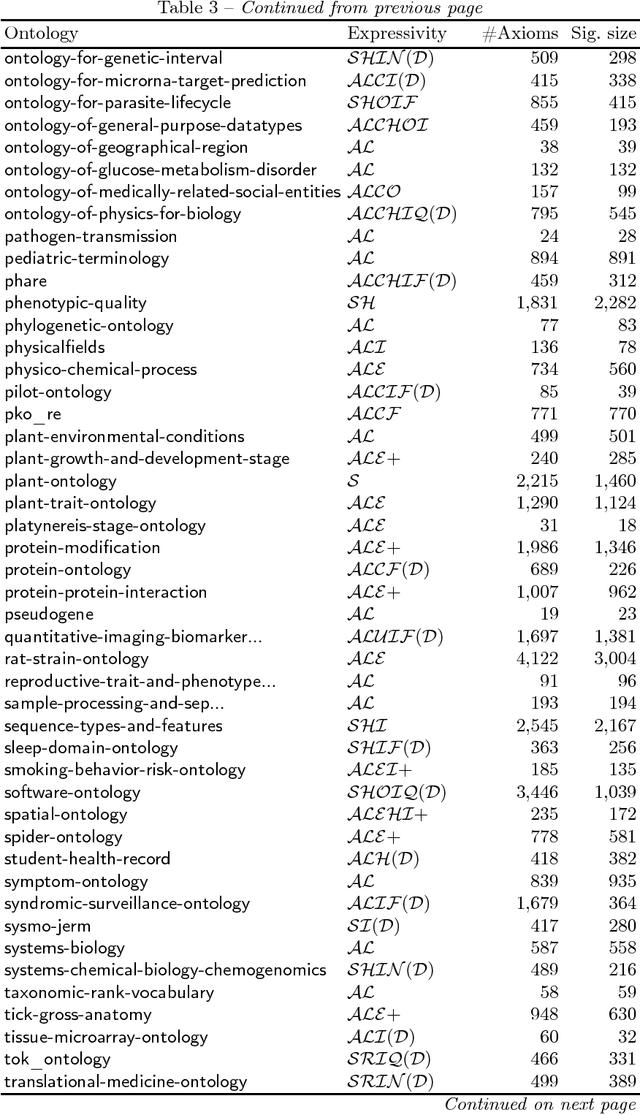Bijan Parsia
Minimal Macro-Based Rewritings of Formal Languages: Theory and Applications in Ontology Engineering (and beyond)
Dec 18, 2023Abstract:In this paper, we introduce the problem of rewriting finite formal languages using syntactic macros such that the rewriting is minimal in size. We present polynomial-time algorithms to solve variants of this problem and show their correctness. To demonstrate the practical relevance of the proposed problems and the feasibility and effectiveness of our algorithms in practice, we apply these to biomedical ontologies authored in OWL. We find that such rewritings can significantly reduce the size of ontologies by capturing repeated expressions with macros. In addition to offering valuable assistance in enhancing ontology quality and comprehension, the presented approach introduces a systematic way of analysing and evaluating features of rewriting systems (including syntactic macros, templates, or other forms of rewriting rules) in terms of their influence on computational problems.
Syntactic vs. Semantic Locality: How Good Is a Cheap Approximation?
Jul 06, 2012



Abstract:Extracting a subset of a given OWL ontology that captures all the ontology's knowledge about a specified set of terms is a well-understood task. This task can be based, for instance, on locality-based modules (LBMs). These come in two flavours, syntactic and semantic, and a syntactic LBM is known to contain the corresponding semantic LBM. For syntactic LBMs, polynomial extraction algorithms are known, implemented in the OWL API, and being used. In contrast, extracting semantic LBMs involves reasoning, which is intractable for OWL 2 DL, and these algorithms had not been implemented yet for expressive ontology languages. We present the first implementation of semantic LBMs and report on experiments that compare them with syntactic LBMs extracted from real-life ontologies. Our study reveals whether semantic LBMs are worth the additional extraction effort, compared with syntactic LBMs.
 Add to Chrome
Add to Chrome Add to Firefox
Add to Firefox Add to Edge
Add to Edge